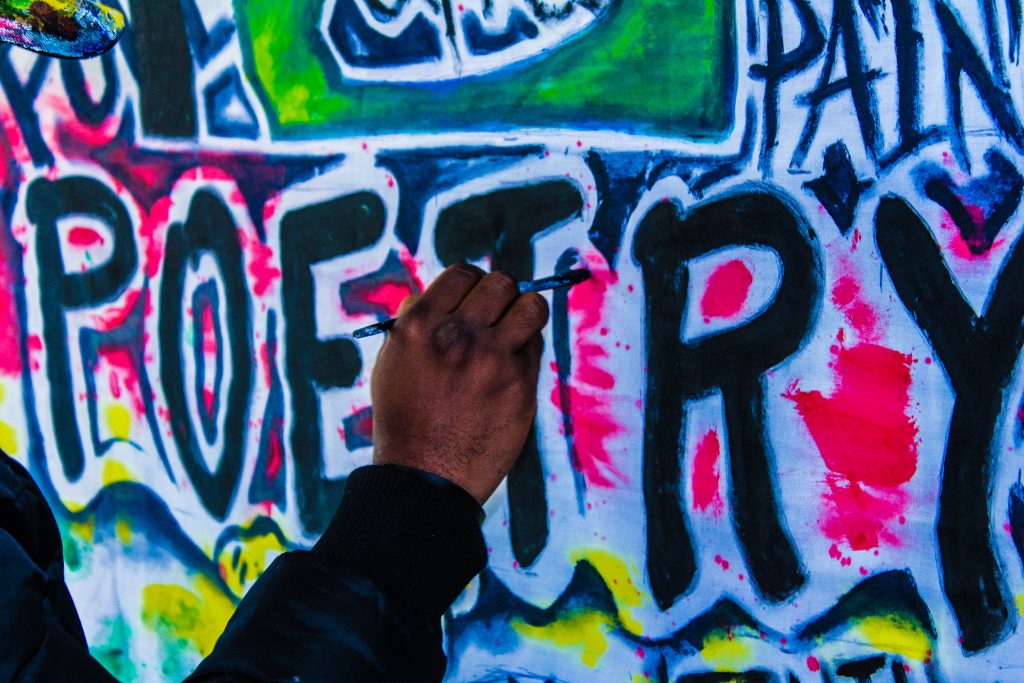As with most other subjects and professions, writing and writers are associated with a large number of myths and misconceptions. These can be annoying, at the least, or damaging, at the worst. Let’s look at some of the most common myths and find out just why they are so wrong.

Write only when you have an idea. This sounds great – after all, how can you write if you don’t know what to say? This practice, though, can seriously undermine your work. Inspiration only strikes every so often, and if you wait for it to appear, you may be waiting a long time and not putting anything down on the page. If you’re not writing, then how do you hone your craft? And what’s more, how do you meet a deadline if you’re “blocked” and don’t know what to say?
The reality is that you need to make a commitment to doing the work, and that means working each and every day. Some days you’ll be more productive than others, but you will accomplish something simply by turning your writing into a daily habit. You don’t need to wait for inspiration – your mind will be conditioned to produce as soon as you sit down with pen or keyboard. Sure, you may have to go back and rework parts later, but you’ll already have done the heavy lifting and will be better prepared to reword, restructure, or just polish.

Writers don’t work hard, they just sit and type each day. This is wrong on so many levels that I almost don’t know where to begin. Writing is a skill, and like any skill, it has to be practiced and mastered. It requires intense discipline, study, and a lot of trial-and-error. Writers, no matter what kind of writing they do, work hard for every penny they earn and every achievement they make. That involves sitting down for hours every day; squeezing writing time in between the day job and family time and the need to sleep; taking classes; learning all the minutiae of spelling, grammar, style, and form; doing endless rewrites; and enduring criticism and rejection from loads of self-professed “experts.” It really rankles when people cavalierly state, “Oh, yeah, I want to write a book, too,” as if it will be the easiest thing in the world to accomplish. It’s not. Really.

If you work hard enough at writing a novel – or better yet a series – you will make a good living. Oh, if only this were true. A large percentage of writers are not able to make a living from what they do; they write because they love the written word and feel compelled to communicate their ideas to others through those words. The fact is that most writers invest years of their lives trying to turn out the “perfect book,” but when it comes time to publish, no matter how good the book is, the writer is overlooked because they have no previous publishing credits. Most of a paying writer’s life is spent first writing articles and stories and other documents for free or on spec so that they can earn those credits and make them a “good risk.” That, of course, means the need for a day job in addition to the writing work. In addition, these days most publishers won’t take on a new writer (or even an established one) if they don’t come equipped with a large social media presence across multiple platforms so that they can help market the book once it comes out, so you need to spend a lot of time and effort establishing that presence. And if you’re self-publishing, chances are you’re going to lay out more money than you’ll see coming back in, at least for the first half-dozen books.

If you learn the specifics of how to write a particular form (i.e. poetry, short stories, etc.), you’ll have no problem doing it. Learning the basics of something is just that – the basics. As we’ve already discussed, writing is a skill and must be practiced to perfect it. I started studying classical poetic forms a number of months ago, but knowing that a sonnet has 14 lines, an iambic meter, and a given rhyme scheme did not tell me how to choose the proper words to convey an image or shape those words into ideas or a larger theme that would both fulfill the purpose of the form and resonate the content with readers. Months later, I’m still learning how to do that; sometimes I succeed, and sometimes I don’t. But with each day’s practice, I increase my knowledge incrementally, hopefully becoming better as I move forward. No matter what the form, every writer must go through this process – it’s how you improve and, hopefully, succeed.

Once you get your ideas down on the page, you’ve succeeded. Well, not really. It’s certainly a great achievement to come up with a first draft, but that’s all it is, a first draft. It is miles away from perfection. In the process of getting ideas down on paper (or the word processor), your focus is – and should be – just getting the ideas down. You shouldn’t worry about spelling, grammar, or even so much about continuity at this stage. Your first draft is the easy (and often the quickest) part.
Next comes the editing. NOBODY writes a clean first draft. There are ALWAYS errors that need to be corrected. The spelling and grammar are the easy parts to fix; much harder is continuity. The problem is, the writer is too close to the story to see anything but what she expects to see and therefore can’t make the hard choices of what needs to be changed. Hand the document over to a friend or colleague who can read it through and tell you where your characters are lacking, what events are out of order, or which situations don’t make sense in the context of the story as a whole. This is called developmental editing, and it’s a critical part of the writing process. Once you’ve fixed the problems, hand over the draft to a professional editor. Yes, this may cost you, but nothing sinks a book or story faster than one that contains a boatload of errors. It shows you are not professional enough yourself to care about your work, and if you don’t care, why should a publisher? Even something as short as a poem must go through a revision-and-polish process to make it jump off the page and grab the reader. Editing matters, and it is an integral part of the writing process.
Do you know of any myths about writing that you’d like to discuss? Please let us know in the comments below.
– Miriam Ruff, Content Creator, PoetsIN
Please follow and like us:
As with most other subjects and professions, writing and writers are associated with a large number of myths and misconceptions. These can be annoying, at the least, or damaging, at the worst. Let’s look at some of the most common myths and find out just why they are so wrong.
Write only when you have an idea. This sounds great – after all, how can you write if you don’t know what to say? This practice, though, can seriously undermine your work. Inspiration only strikes every so often, and if you wait for it to appear, you may be waiting a long time and not putting anything down on the page. If you’re not writing, then how do you hone your craft? And what’s more, how do you meet a deadline if you’re “blocked” and don’t know what to say?
The reality is that you need to make a commitment to doing the work, and that means working each and every day. Some days you’ll be more productive than others, but you will accomplish something simply by turning your writing into a daily habit. You don’t need to wait for inspiration – your mind will be conditioned to produce as soon as you sit down with pen or keyboard. Sure, you may have to go back and rework parts later, but you’ll already have done the heavy lifting and will be better prepared to reword, restructure, or just polish.
Writers don’t work hard, they just sit and type each day. This is wrong on so many levels that I almost don’t know where to begin. Writing is a skill, and like any skill, it has to be practiced and mastered. It requires intense discipline, study, and a lot of trial-and-error. Writers, no matter what kind of writing they do, work hard for every penny they earn and every achievement they make. That involves sitting down for hours every day; squeezing writing time in between the day job and family time and the need to sleep; taking classes; learning all the minutiae of spelling, grammar, style, and form; doing endless rewrites; and enduring criticism and rejection from loads of self-professed “experts.” It really rankles when people cavalierly state, “Oh, yeah, I want to write a book, too,” as if it will be the easiest thing in the world to accomplish. It’s not. Really.
If you work hard enough at writing a novel – or better yet a series – you will make a good living. Oh, if only this were true. A large percentage of writers are not able to make a living from what they do; they write because they love the written word and feel compelled to communicate their ideas to others through those words. The fact is that most writers invest years of their lives trying to turn out the “perfect book,” but when it comes time to publish, no matter how good the book is, the writer is overlooked because they have no previous publishing credits. Most of a paying writer’s life is spent first writing articles and stories and other documents for free or on spec so that they can earn those credits and make them a “good risk.” That, of course, means the need for a day job in addition to the writing work. In addition, these days most publishers won’t take on a new writer (or even an established one) if they don’t come equipped with a large social media presence across multiple platforms so that they can help market the book once it comes out, so you need to spend a lot of time and effort establishing that presence. And if you’re self-publishing, chances are you’re going to lay out more money than you’ll see coming back in, at least for the first half-dozen books.
If you learn the specifics of how to write a particular form (i.e. poetry, short stories, etc.), you’ll have no problem doing it. Learning the basics of something is just that – the basics. As we’ve already discussed, writing is a skill and must be practiced to perfect it. I started studying classical poetic forms a number of months ago, but knowing that a sonnet has 14 lines, an iambic meter, and a given rhyme scheme did not tell me how to choose the proper words to convey an image or shape those words into ideas or a larger theme that would both fulfill the purpose of the form and resonate the content with readers. Months later, I’m still learning how to do that; sometimes I succeed, and sometimes I don’t. But with each day’s practice, I increase my knowledge incrementally, hopefully becoming better as I move forward. No matter what the form, every writer must go through this process – it’s how you improve and, hopefully, succeed.
Once you get your ideas down on the page, you’ve succeeded. Well, not really. It’s certainly a great achievement to come up with a first draft, but that’s all it is, a first draft. It is miles away from perfection. In the process of getting ideas down on paper (or the word processor), your focus is – and should be – just getting the ideas down. You shouldn’t worry about spelling, grammar, or even so much about continuity at this stage. Your first draft is the easy (and often the quickest) part.
Next comes the editing. NOBODY writes a clean first draft. There are ALWAYS errors that need to be corrected. The spelling and grammar are the easy parts to fix; much harder is continuity. The problem is, the writer is too close to the story to see anything but what she expects to see and therefore can’t make the hard choices of what needs to be changed. Hand the document over to a friend or colleague who can read it through and tell you where your characters are lacking, what events are out of order, or which situations don’t make sense in the context of the story as a whole. This is called developmental editing, and it’s a critical part of the writing process. Once you’ve fixed the problems, hand over the draft to a professional editor. Yes, this may cost you, but nothing sinks a book or story faster than one that contains a boatload of errors. It shows you are not professional enough yourself to care about your work, and if you don’t care, why should a publisher? Even something as short as a poem must go through a revision-and-polish process to make it jump off the page and grab the reader. Editing matters, and it is an integral part of the writing process.
Do you know of any myths about writing that you’d like to discuss? Please let us know in the comments below.
– Miriam Ruff, Content Creator, PoetsIN
admin